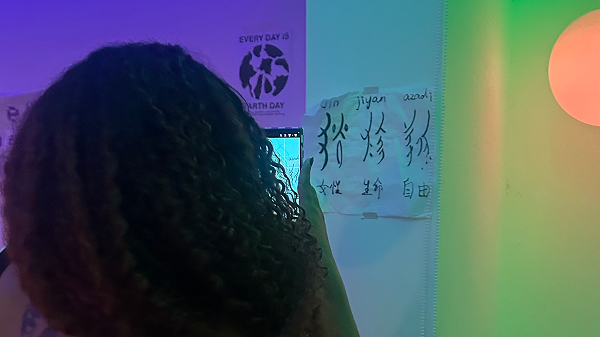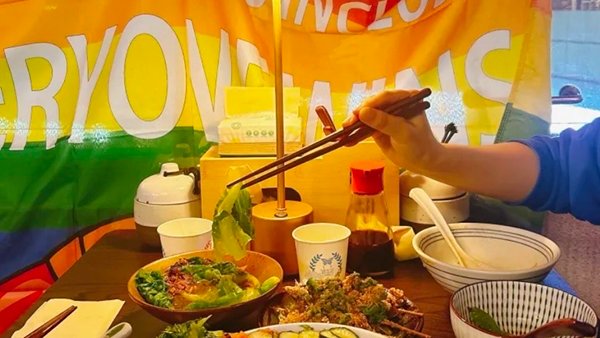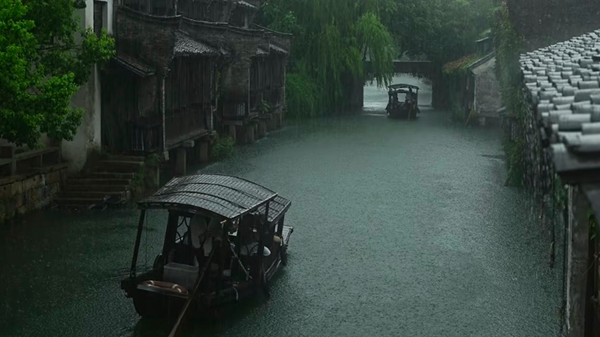As a country with a very long history, China has been through complicated stories.
There were times when women were squeezed and limited by strict etiquette and rules. But in this long process, women also showed strong will and self-consciousness. They built their own ways of survival, resistance, and shining.
Now, it is possible to feel the glimmers of these women — even from 2000 years ago — in certain Chinese cities and locations. These are not maybe famous big tourist spots, but they are really wonderful.
Here are three small but very powerful feminist travel destinations in China:
Nvshu 女书 — The Only Language in the World Made and Used by Women
📍 From Yongzhou, Hunan

Nvshu (女书) is the sole language in the world that was created, used, and passed down only among women.
Its characters look like willow branches, or small crescent moons. They are beautiful, gentle — yet resilient.
Why did it appear?
In those days, women had little chance to be educated. Most ordinary women, were only fighting for survival — to struggle for right to study, to marry whom they liked, even just for minimal respect.
Nvshu was a form of quiet revolt.
Women in Hunan created this secret language, to build their own space, to build their own world, to speak for themselves and defend each other. It was written on fans, on cloth, even on songs. They kept this language as silent revolution, never disclosing it to their fathers, husbands, or sons.
Go to Hunan with Bridge to Locals, to see how women built a world just for themselves.
Talk to the elderly grandmas who still know this language. Learn the characters that are about to disappear. It’s like walking into a secret sisterhood from another time.
Mazu 妈祖 — The Biggest Female God in Chinese Folk Religion
📍 From Fujian

Mazu was a real woman.
She lived in ancient Fujian, and helped many local people — especially fishermen and sailors. After she passed away, her story became a legend. People began to believe she was the goddess of the sea, who could protect ships and crews.
Even today, Mazu is deeply loved and believed in South China and Southeast Asia.
If you visit Fujian during Mazu’s birthday festival, you will see huge ceremonies and celebrations. Crowds of people — men, women, elders, children — come to honor her.
It’s not just a religious story.
Through the faces of the people, you can imagine how much this woman must have done, to leave such a deep mark in people’s hearts, even after so many centuries.
Lugu Lake 泸沽湖 — One of the Few Living Matrilineal Societies in the World
📍 From Yunnan and Sichuan border — Mosuo people

At Lugu Lake, the Mosuo people still maintain a rare matrilineal family system.
Here, the family is headed by women. Property is passed down through the female line. Men do not have property rights in the family house.
They practice "walking marriages" — a unique, female-dominated marriage culture. Women are free to select their partners, and both of them have the right to retain their independence.
Handicrafts, dances, daily life — observe here how gender relations are remade in a completely different way from the patriarchal systems to which most of us are accustomed.
Visiting Lugu Lake is like entering a living sociology museum — except it is real life. The Mosuo culture gives us an alternative reflection on gender, love, and family.
Go See, Go Feel
China’s feminist stories are not only in history books — they are still alive in these places.
If you are a female traveler (or any traveler interested in gender stories), these three destinations will touch your heart and inspire you.

Go see. Go feel.
And maybe, you’ll come back with new ideas about how women can shape the world — quietly, bravely, beautifully.








Leave a comment
This site is protected by hCaptcha and the hCaptcha Privacy Policy and Terms of Service apply.